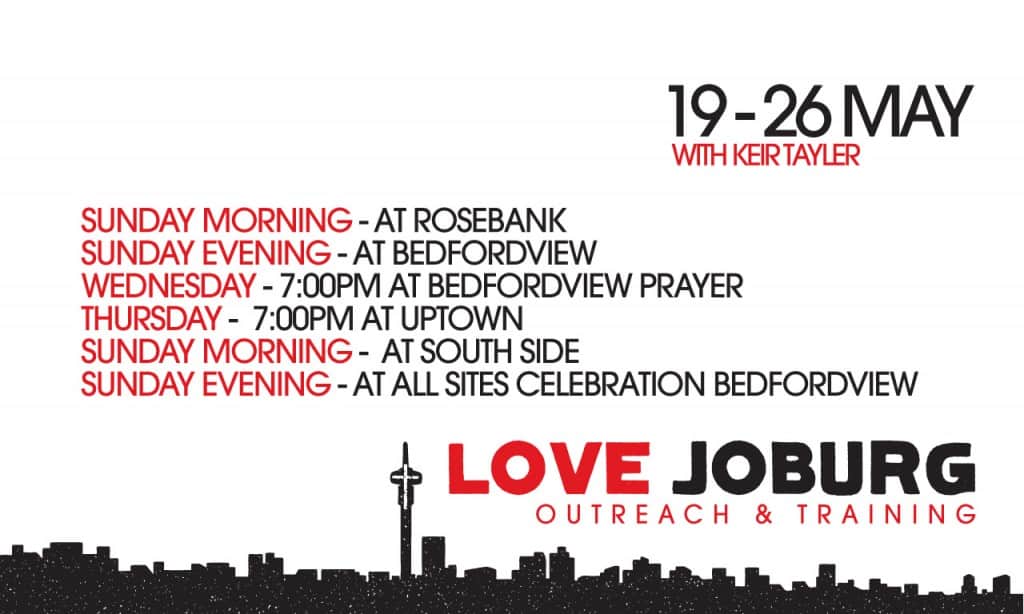On 4 May, we re-launch our Love Joburg Equipping Course. It will be a 12-week (two term) course where we will learn how to live a lifestyle of evangelism.
We’ll be publishing a series of posts that are adapted from the new material that will be made available when the course begins. In this part, we want to highlight some of what we’re doing – trying to create a lifestyle of evangelism, rather than evangelism that is ‘event’ based.
A lifestyle of evangelism is simply living out our faith and sharing it with others. Evangelism is a fruit of our faith and our genuine love for God and others. You don’t need to hype yourself up for it. Evangelism is actually not an event, a programme, but a lifestyle. It’s not calendar-driven, it’s relationship driven.
Here are some interesting stats that support the point. In a U.S. survey of 15,000 people, the following statistics showed the primary influence in conversion:
-
1% were converted at ‘crusades’ (a large, tent-based outreach event)
-
1% were converted at a ‘visitation’ (door-to-door evangelism or something of that kind)
-
1% were converted due to some kind of crisis
-
3% were converted due to some kind of ‘cold church contact’ (a face-to-face discussion, a pamphlet )
-
3% were converted at some sort of event (outside of a ‘crusade’)
-
5% were converted in or through Sunday School
-
6% were converted due to having a relationship with a pastor or some-or-other ministry leader in the church
-
80% were converted through a friendship with a Christian.
Most people, in a similar survey in the UK, had a gradual conversion to Christianity (69%), while others were converted in a ‘crisis moment’ (a Biblical example of this would be Paul). This shows that people do need time to come to Christ – you don’t need to convince them in one conversation!
Interestingly, of the factors involved in conversion, almost 0% was due to a TV or radio programme. Why this is interesting is it shows that some of our evangelistic strategies that require the most financial investment might bring very little result. Ultimately, the best results come through your relationships.
Relational evangelism is far more effective than any other kind of evangelism. Your relationships.
People really are interested in the gospel, if they’re told the gospel and not something else. Which is why we really do need to know the gospel, and you really need to understand how key your friendships with others are in presenting the gospel. In our Love Joburg course, we want to cover this in more detail.




